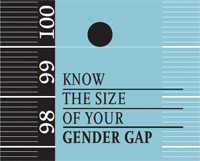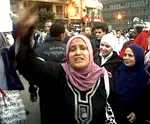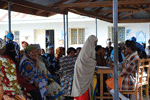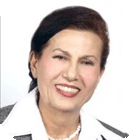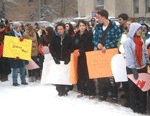Published on Thu, 2012-03-08 13:26
■ Mongolia narrowed the gap putting legislation into force The achievements made by women all over the world towards equity in education are still very far from making an impact on their having a fair share in the economy or in political power. This can be concluded from the updated figures of the Gender Equity Index (GEI) 2012, published by Social Watch on the eve of International Women’s Day, March 8. None of the 154 countries considered in the study has narrowed the gender gap to an “acceptable” level. |
Published on Thu, 2012-03-08 13:21
On the occasion of International Women’s Day, the International Federation of Human Rights (FIDH) and 14 citizens’ organizations of the Arab world, among them several members of Social Watch, called upon national governments and parliaments to implement 20 measures to establish the equality between women and men. |
Published on Tue, 2012-03-06 11:22
The Southern African Human Rights NGO Network (SAHRINGON) Tanzania Chapter, national focal point of Social Watch, has urged the government to amend or repeal all discriminatory laws based on gender for the country to achieve the equality between men and women provided by the Millennium Development Goals (MDGs), reported Tanzanian newspaper The Guardian. |
Published on Mon, 2012-03-05 12:46
Armenian legislation supports women’s rights, but the laws often clashes with daily habits. The non governmental Center for the Development of Civil Society (CDCS), presided by Svetlana A. Aslanyan, launched some years ago the program “Empowering young women in rural areas”, that included seminars on human rights, gender equality, leadership as well as training courses and publication of materials and books. The aim was to increase the role of rural women in the decision making processes at both local and national levels. The seminars have helped young women to discover their abilities and to be active participants in civil society. |
Published on Mon, 2012-03-05 08:14
With the Missing Women’s Inquiry ongoing in Vancouver, a Canadian national forum aimed at improving the security and safety of First Nations communities couldn’t have come at a more opportune time last month, wrote journalist Viveca Ellis on an article published by The Epoch Times international media network. |

